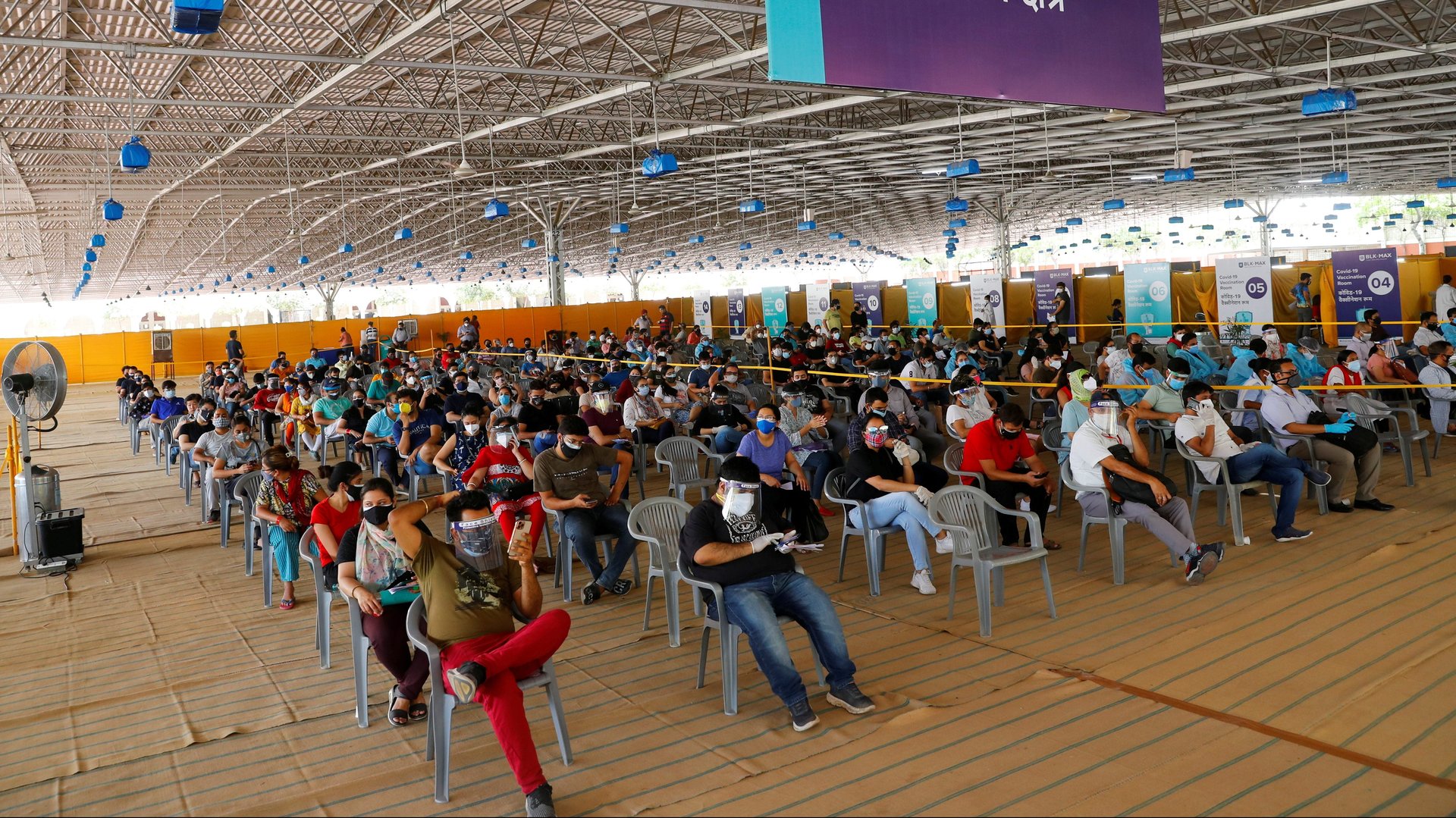India’s vaccine supply is a curious mix of abundance and shortage
The Covid-19 vaccines seem to have furthered the economic divide in India.


The Covid-19 vaccines seem to have furthered the economic divide in India.
State governments in the country have had to ration Covid-19 vaccines doses and shut down free vaccination centres, while private centres, where Indians can pay to get the vaccine, have plenty of shots available.
Of the total of over 40,000 vaccination centres in the country, 1,960—or 4.8%—are run by private hospitals and clinics. According to the Narendra Modi government’s vaccine procurement policy, manufacturers can reserve 25% of their stock for private centres.
The state of Delhi, for example, had completely halted administering first doses of Covishield, the local version of the AstraZeneca vaccine, at the government centres till July 31 in the face of short supply. As of today (Aug. 2), it has resumed first doses for this vaccine, but 80% are still reserved for second doses.
But the private vaccination centres, which have no such dose-based restriction, have plenty of stock. The central government’s Cowin website shows that Delhi’s private hospitals have doses in the hundreds, while most government-run vaccine centres are either booked up or not listed.

This gap becomes more glaring in the state of Maharashtra, where private centres in rural regions have administered only up to 10% of the total doses so far, according to a report in The Times of India newspaper. In the district of Beed, nearly all vaccines were given out by government centres. By contrast, in metropolitan cities like Mumbai and Pune, the share of doses administered at private centres goes up to 50%.
The unequal distribution of vaccines is likely a consequence of India’s worsening inequality.
High price of vaccines at private centres
A dose of any of the Covid-19 vaccines currently available in India costs between Rs780 ($11) and Rs1,410. Covishield, which forms the majority of India’s immunisation programme, costs Rs780 per dose at a private centre. For most Indian families, this is an entirely unaffordable price point.
The top 10% of India’s population in economic terms hold 77% of the total national wealth, according to an estimate by Oxfam, a global organisation working towards poverty alleviation. According to the government’s estimates, which do not account for the brutal second wave of Covid-19, India’s per capita income is less than Rs10,000 per month.
With low per capita rate, rising prices, and high unemployment rates, paying close to Rs1,600 for two doses the cheapest vaccine at a private centre is not an option for a large number of Indian households.
This is the reason why commercial hubs like Mumbai still have takers at private vaccination centres.
“Per capita income in cities like Mumbai and Pune is higher and they have a higher proportion of those who are likely to be able to afford vaccine prices at private hospitals. Also, these are industrial and commercial centres with large companies that place bulk paid orders to vaccinate their employees,” R Ramakumar, an economist at the Tata Institute of Social Sciences, told The Times of India newspaper. “The absence of higher levels of income, large private hospitals and large commercial activity, in districts like Beed, could mean close to zero demand for paid vaccination”